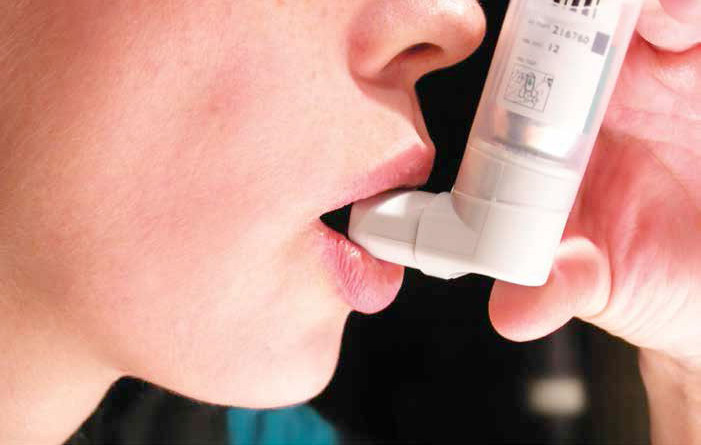Asthma care during Winter
Asthma is characterized by an abnormal behaviour of the bronchial pipes triggered by an allergic reaction that makes breathing difficult. The problem increases in the winter. Here are some tips to alleviate your suffering By Dr. Pankaj Sayal

If you are experiencing severe symptoms of wheezing while breathing both in and out, coughing that won’t stop, very rapid breathing, chest tightness or pressure, tightened neck and chest muscles called retractions, difficulty talking, feeling of anxiety or panic, pale, sweaty face and blue lips or fingernails or worsening of symptoms despite taking medication, you might be having an attack of asthma.
Sometimes asthma symptoms include sighing, fatigue, and rapid breathing, not coughing or wheezing. You must take certain precautions like never forget your inhaler, stay calm, beware of indoor allergens, never breathe from your mouth.
For being extra safe this winter, pull a neck gaiter, scarf or turtleneck up over your mouth and nose to warm the air you are inhaling. Avoid exercising outdoors when it’s very cold outside. It is also advised to change the filters of your heating system every year before winter season starts.
Asthma is a persistent disease of the bronchial pipes (air shaft) that makes breathing difficult. It is usually connected to allergic reaction or other forms of hypersensitivity. Asthma problems gradually increase in winter. Cold weather can cause asthma to flare up more than usual, not to mention the extra threat of colds and flu, which can badly affect the respiratory system. The attacks happen more often in the winters because of mainly two reasons: the patients usually spend more time indoors in the winters and there is cold outside. Hence the challenges in the winters increase for the asthma people.
An asthma attack is characterized by an unexpected corroding symptom caused by the tightening of the muscles around your airways (bronchospasm). During an attack, the lining of the airways also becomes swollen or provoked and mucus more than normal is produced. All these factors create bronchospasm, inflammation, and mucus production.
There are many more reasons why winter is a problem for asthmatics. The cold air itself is a common trigger of breathlessness and the attacks, plus winter brings with it an increase in colds and respiratory infections like Swine flu etc. Being indoors can cause problems too as the air is often of poor quality during the winter because we prevent fresh air circulation by closing the doors and windows to keep out the chill.
Smog is another factor which can aggravate asthma for people living in and around Delhi. Much of this is unavoidable so it’s important that you and those around you know about your asthma in case you do have an attack.
Prevention:
To avoid getting infections or catching cold one should always wash one’s hands properly with soap and water. Because infections aggravate the asthmatic condition. Alcohol-based sanitizers works best for this. One should not sit by a fire place as the smoke of the burning woods is like burning tobacco and it triggers asthma.
Exercise indoors. On days when it’s bitterly cold outside and the wind chill makes it feel like it’s below zero, go to the gym instead of exercising outside. The temperatures and the humidity in the gym are less likely to cause a problem. If you still want to exercise in the fresh (albeit cold) air, choose a time of the day when it might be warmer, such as the mid-afternoon.
Replace filters. Your home heating system may blow dust throughout your house, especially when you first start it up for the winter. It’s important to clean and replace the filters before turning on your system so as not to release the debris and trigger an asthma attack. Clean and check the filters periodically throughout the heating season to avoid issues with winter asthma. Also, try to keep the temperature and humidity levels in your home consistent.
Get a flu shot. The Centre for Disease Control and Prevention (CDC) recommends that most people aged 6 months and older get an annual flu shot to help protection against the flu virus. Having asthma won’t make you more susceptible, but if you do get the flu, the results could be more serious, even if you keep your asthma symptoms under control. It’s important that people with asthma get the injectable form of the flu vaccine made with inactivated [killed] flu virus. People with asthma shouldn’t get the nasal spray (FluMist) vaccine because it contains live virus.

